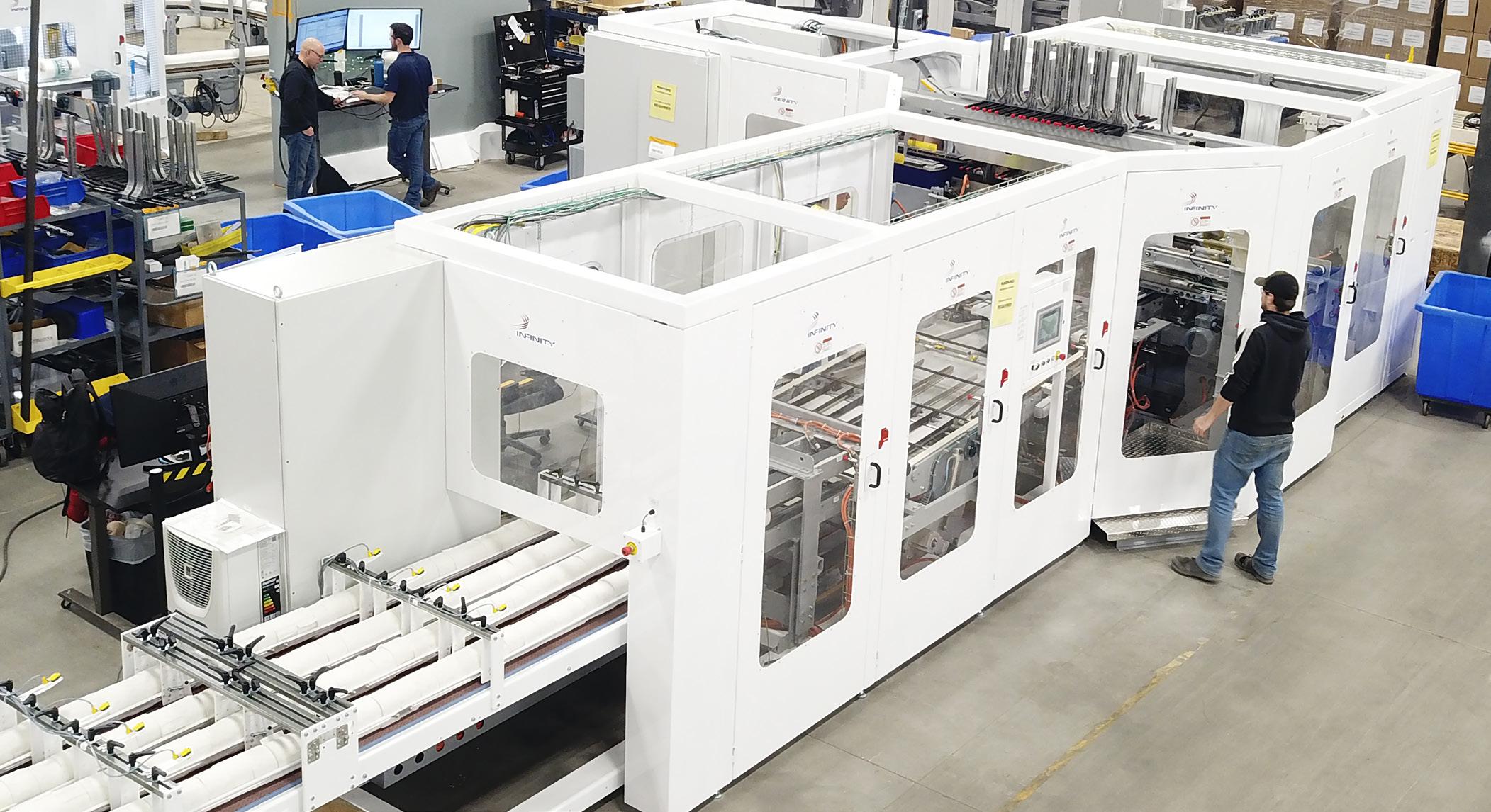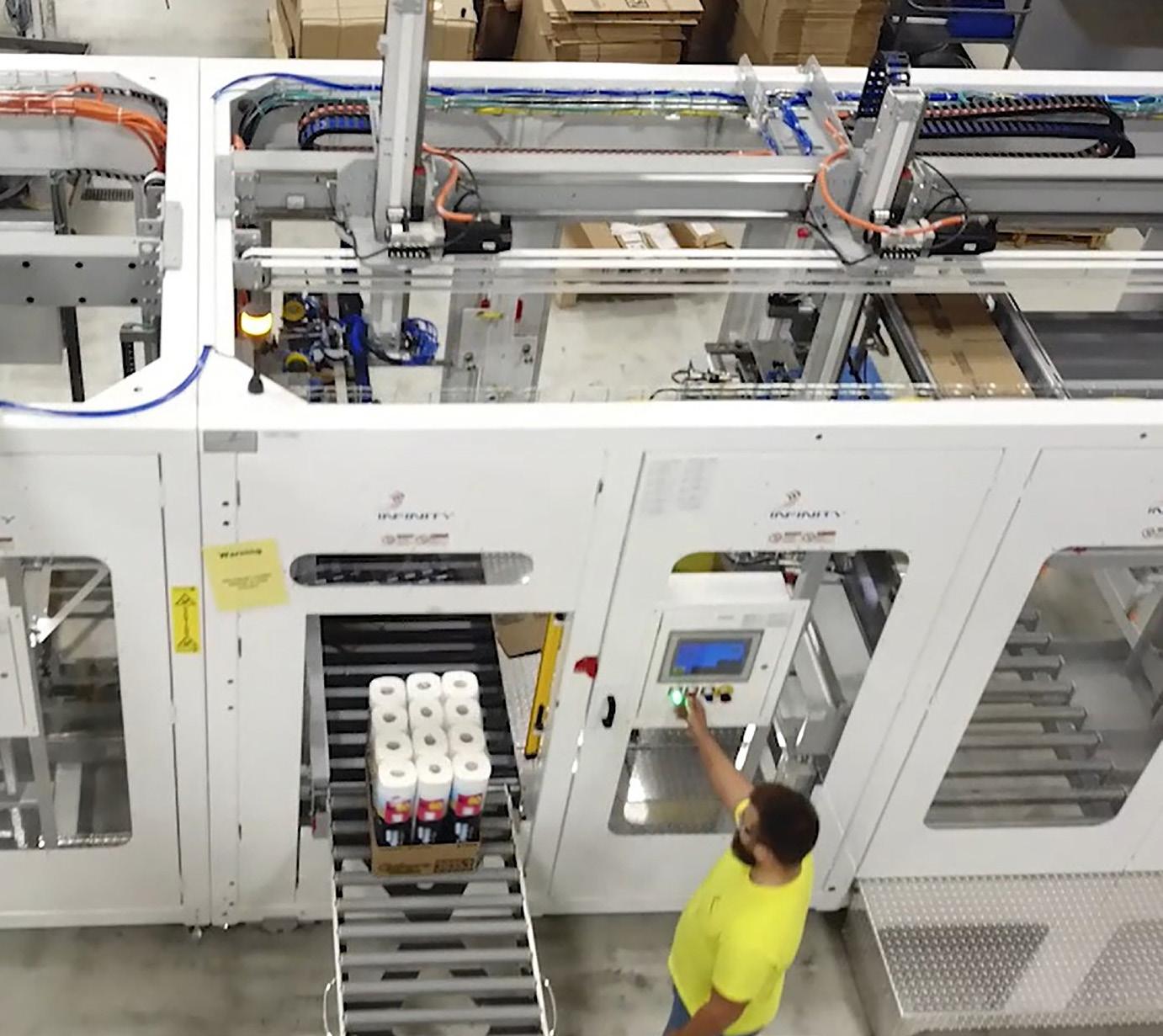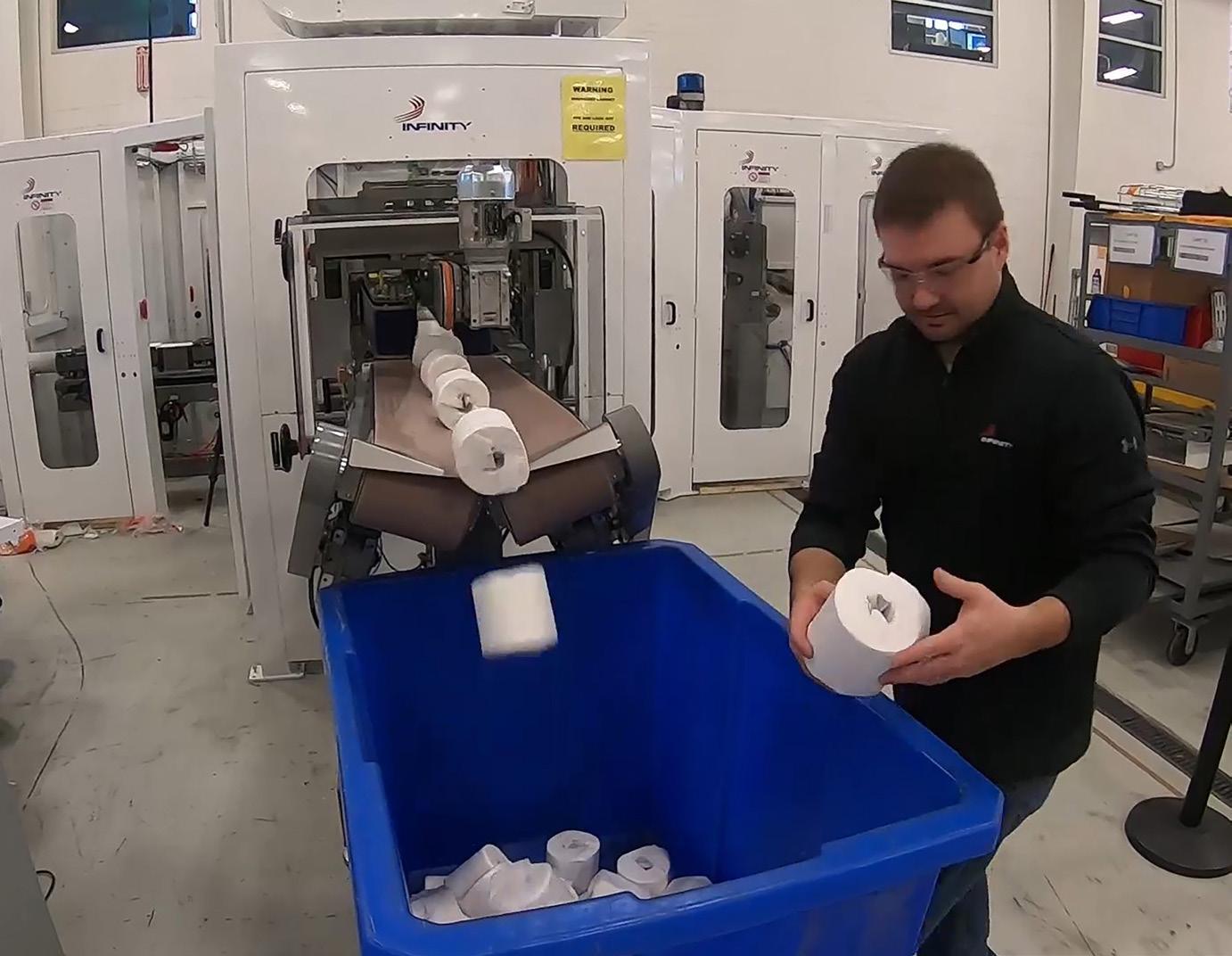
2 minute read
‘AS ENVIRONMENTAL AWARENESS INCREASES AMONGST CONSUMERS, PRODUCT PACKAGING FACES INCREASED SCRUTINY’
Here, Gregory Sense, Marketing Coordinator, Infnity Machine & Engineering Corp, discusses how the material savings and positive ecological impact made possible by the company's range of machinery can greatly reduce plastic consumption for tissue converters. A TWM report.

THE PUSH FOR MORE SUSTAINABLE PACKAGING IS NOT BEING LED SOLELY BY CONSUMERS. IN THE TISSUE INDUSTRY, MANY CORPORATIONS HAVE RECOGNISED THE BENEFITS OF PACKAGING SOLUTIONS DEVELOPED WITH A FOCUS ON THE ENVIRONMENT. AS THE NUMBER OF CONSUMERS AND CORPORATIONS THAT PRIORITISE SUSTAINABILITY INCREASES, THE PACKAGING INDUSTRY MUST ALSO PRIORITISE INNOVATIVE ECOLOGICAL PACKAGING.
Consumer research indicates that more and more people strongly consider the ecological impact of the products they buy when making purchasing decisions. As environmental awareness increases amongst consumers, product packaging faces increased scrutiny.
Product packaging can disincline ecologically motivated consumers due to an often heavy reliance on plastics and other materials that lack a green reputation. However, the push for more sustainable packaging is not being led solely by consumers. In the tissue industry, many corporations have recognised the benefts of packaging solutions developed with a focus on the environment.
As the number of consumers and corporations that prioritise sustainability increases, the packaging industry must also prioritise innovative ecological packaging. Infnity Machine & Engineering Corp. has been on the forefront of innovating sustainable packaging solutions. In 2020, Infnity partnered with America’s Little Rapids Corp. to test and develop ECOVA paper overwrap, a 100% plastic free, heat-sealable paper wrap, made from 100% recycled fbre. Since then, Infnity has increased its sustainable packaging eforts and prioritised ecological design in its machinery.
One focus for Infnity engineers has been to pioneer more sustainable packaging for individually wrapped tissue rolls. While primarily used as AfH tissue in North America and Europe, individually packaged bathroom tissue rolls are very common in the South American consumer sector. Due to the increased amount of packaging material needed to wrap rolls individually, Infnity has designed its single roll wrappers, the S250BRT and the S250HT, to wrap in paper as well as plastic.
However, Infnity’s commitment to sustainable packaging goes beyond primary packaging. Infnity’s C15 Casepacker is capable of loading rolls into corrugated trays. This not only provides stable secondary packaging for tissue products, but it also reduces the amount of material needed for packaging as a tray often uses less than half the cardboard of a standard case. The C15 can also package large-roll-towel directly into corrugated cases without the need for any additional packaging, cutting down on material cost, and material waste.
While prioritising sustainable packaging is a positive step for the tissue industry, Infnity has taken it a step further by also exploring new ways to reduce the environmental impact of tissue packaging machinery. Infnity machinery can be equipped with IE3 and IE4 rated motors, which use less power while performing at a higher efciency. Infnity is also trailing monitors on its new Vision G3 multipack wrapper that track the machine’s power usage and air consumption. The information that is collected will be shared with the purchaser which will allow ecological opportunities to be identifed and implemented based on the recorded data.
This article was written for TWM by Gregory Sense, Marketing Coordinator, Infnity Machine & Engineering Corp.
WHILE PRIORITISING SUSTAINABLE PACKAGING IS A POSITIVE STEP FOR THE TISSUE INDUSTRY, INFINITY HAS TAKEN IT A STEP FURTHER BY ALSO EXPLORING NEW WAYS TO REDUCE THE ENVIRONMENTAL IMPACT OF TISSUE PACKAGING MACHINERY. INFINITY MACHINERY CAN BE EQUIPPED WITH IE3 AND IE4 RATED MOTORS, WHICH USE LESS POWER WHILE PERFORMING AT A HIGHER EFFICIENCY.












